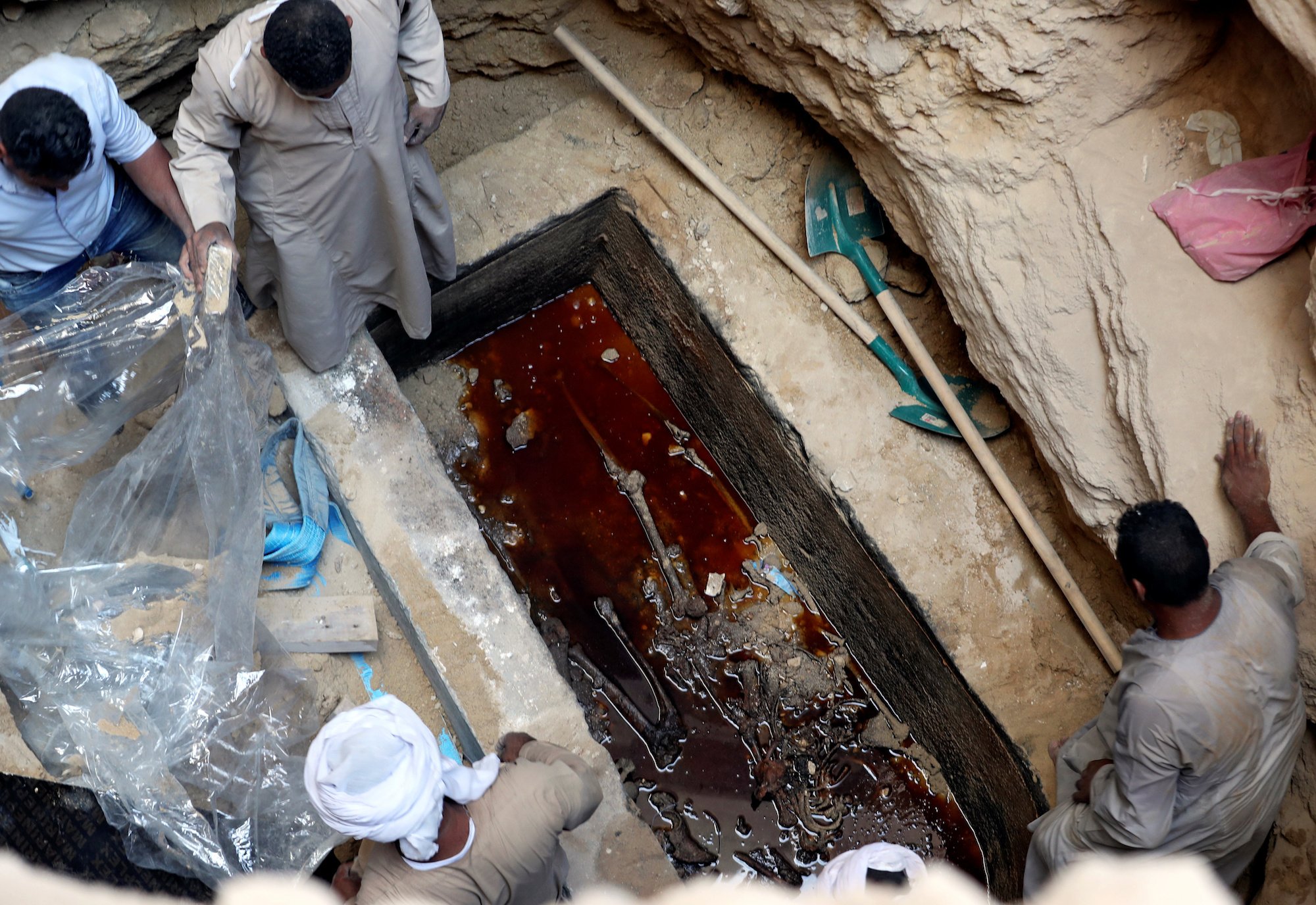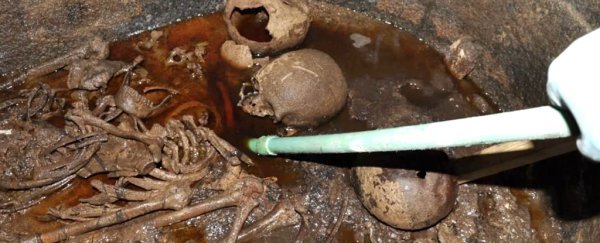After days of intense and viral speculation, archaeologists in Egypt this week finally opened up that mysterious, 2,000-year-old giant black sarcophagus.
So far, no curse has been unleashed (that we know of), but the team did discover something slightly gruesome inside - three skeletons, most likely soldiers, decaying in a pool of dark red, murky sewage water.
Of course, the internet couldn't just be cool about the discovery - no, there is now a Change.org petition begging for humans to be allowed to drink that sewage juice inside.
 (Mohamed Abd El Ghany)
(Mohamed Abd El Ghany)
The petition is addressed to the "king of skeletons, Egypt" and states:
"we need to drink the red liquid from the cursed dark sarcophagus in the form of some sort of carbonated energy drink so we can assume its powers and finally die [sic]"
Depressingly (or hilariously, depending on how you want to look at it), more than 3,400 people have signed at the time of writing.
The target is to attract 5,000 signatures - although we're not sure that would be enough to compel any self-respecting skeleton kings.
Of course, we realise, or at least hope, that the petition is a joke. The most recent update from the creator "innes mck"?
"Please stop trying to tell me the skeleton juice is mostly sewage thats impossible everyone knows skeletons cannot poop [sic]."
But the internet is here for it anyway.
 (Change.org screenshot)
(Change.org screenshot)
So, um, we hope we don't have to tell you this, but please don't drink that juice. Or any juice from the inside of a coffin, okay?
Live Science health editor Sara G. Miller asked a microbiologist what would happen if someone did manage to get access to the goo inside, and as would be the case for any sewage consumption, it's not great.
Rolf Halden from Arizona State University's Biodesign Institute told Live Science that the sewage water, in addition to the debris from those decaying bodies sitting in it, would contain a whole heaps of microorganisms, and they could be deadly.
As Miller reports:
"There are most likely viruses, bacteria and other pathogens in that liquid, including some bacteria that can form "endospores," which are extremely tough to kill, Halden said. Spores are known to survive in decaying specimens for thousands, and even millions, of years, he said."
While no one should consume anything from inside that sarcophagus for health and safety reasons, scientists will be analysing the skulls of the decayed skeletons for further clues to their age, where they came from, and cause of death.
Stay tuned, because we haven't heard the last about this sarcophagus yet.
